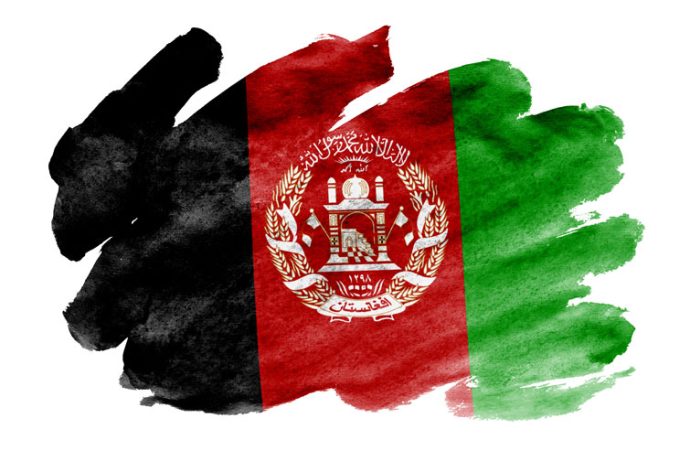Author Recent Posts Asfand Yar Khan Latest posts by Asfand Yar Khan (see all) Outcomes of the Shanghai Cooperation Organisation Heads of Government Summit – October 28, 2024 Deliberations and Outcomes of the 79th Session of the UNGA – October 11, 2024 SCO in Pakistan: Can it bring Normalcy in Indo Pak Relations? – September
Iran and Israel have a longstanding enmity rooted in ideological, political, and strategic differences. Here are some key reasons why the two nations are considered enemies:
Ideological Conflict: Since its 1979 revolution, Iran has positioned itself as a staunch opponent of Israel, viewing the Jewish state as illegitimate and a threat to Muslim unity. Iran’s leaders, including Supreme Leader Ayatollah Ali Khamenei, frequently called for the eradication of Israel, contributing to deep-seated ideological tensions.
Israel’s Existence and the Palestinian Issue: Iran rejects Israel’s legitimacy and has taken a hardline stance on the Palestinian cause. Iran supports Palestinian groups like Hamas and Islamic Jihad, which oppose Israel and advocate for its destruction. This support extends to military, financial, and ideological backing, reinforcing Iran’s opposition to Israel’s right to exist.
Regional Influence and Power Struggle: Iran and Israel are both significant players in the Middle East but with divergent goals. Iran seeks to expand its influence through proxy groups and strategic alliances, challenging the status quo and opposing U.S. interests in the region. Israel, on the other hand, seeks to maintain its security and stability, often aligning with the U.S. and other Western nations. This regional rivalry contributes to their enmity.
Iran’s Nuclear Program: Israel perceives Iran’s nuclear ambitions as a direct threat to its existence. Iran’s alleged pursuit of nuclear weapons has fueled Israeli concerns about a potential existential threat. Israel, along with its allies, has taken a strong stance against Iran’s nuclear program, engaging in covert operations and diplomatic efforts to thwart it.
Historical Tensions and Conflicts: The Iran-Iraq War (1980-1988) and subsequent Middle East conflicts have contributed to the animosity between Iran and Israel. Israel’s support for Iraq during the Iran-Iraq War and its military actions against Iran-backed groups in Lebanon, Syria, and Gaza have intensified their antagonistic relationship.
Proxy Warfare and Military Escalation: Iran’s support for Hezbollah in Lebanon, as well as other proxy groups in Syria and Yemen, has led to direct and indirect confrontations with Israel. These proxy groups often carry out attacks against Israel, escalating the conflict. Israel, in response, conducts strike against Iranian assets and allies, leading to a cycle of violence and retaliation.
These factors collectively explain why Iran and Israel are enemies, with each side holding deep-seated animosities and engaging in strategic maneuvers that exacerbate their rivalry. The conflict has significant regional and global implications, often drawing in other nations and contributing to broader instability in the Middle East.
PRESENT ESCALATION
Iran’s attack on Israel marks a significant escalation in a volatile conflict, resulting from a series of events that built tension between the two nations.
Immediate Trigger: The direct attack from Iran on Israel was reportedly in response to an airstrike on Iran’s consulate in Damascus, Syria, that killed high-ranking Iranian military personnel. This attack, which took place on April 1, resulted in the deaths of two Iranian generals and six officers. Though Israel did not officially claim responsibility for the strike, it is widely believed to be behind it.
Iran’s Attack: On Saturday, Iran launched over 170 explosive drones and 120 ballistic missiles targeting Israel. Most were intercepted by Israel’s advanced air defense systems, with only a few entering Israeli territory. This attack caused some injuries and minor infrastructure damage, particularly from shrapnel wounds. Israel’s military confirmed that its Arrow 3 defense system effectively intercepted most of Iran’s ballistic missiles.
Response from Israel: Following the attack, Israeli officials, including Prime Minister Benjamin Netanyahu, held emergency meetings to discuss their response. There was an airstrike in southern Lebanon targeting the Iran-backed militia Hezbollah, which had launched approximately 40 rockets at Israel. The Israeli government also sought support from the United Nations, urging it to condemn Tehran’s actions.
Concerns and Warnings: Iran’s Foreign Minister Hossein Amir-Abdollahian indicated that the attack on Israel would not target American personnel or bases in the region, though U.S. officials noted no prior notification from Iran regarding the intended targets. In contrast, Iranian commanders warned Israel of a more significant attack if it retaliated against the drone and missile strikes. U.S. President Joe Biden urged Israeli Prime Minister Benjamin Netanyahu to proceed with caution, reaffirming the U.S.’s commitment to Israel’s security while also emphasizing the need for restraint.
Broader Context: The conflict between Israel and Iran has been fueled by longstanding tensions, exacerbated by Iran’s support for groups like Hamas and Hezbollah, which regularly engage in attacks against Israel. The October 7, 2023, Hamas attack on Israel, which killed around 1,200 people and led to Israel’s invasion of Gaza, further strained relations. Iran’s link to this attack, as well as its continued support for these groups, contributes to the ongoing conflict and adds to the region’s instability.
- Outcomes of the Shanghai Cooperation Organisation Heads of Government Summit - October 28, 2024
- Deliberations and Outcomes of the 79th Session of the UNGA - October 11, 2024
- SCO in Pakistan: Can it bring Normalcy in Indo Pak Relations? - September 26, 2024





















Leave a Comment
Your email address will not be published. Required fields are marked with *